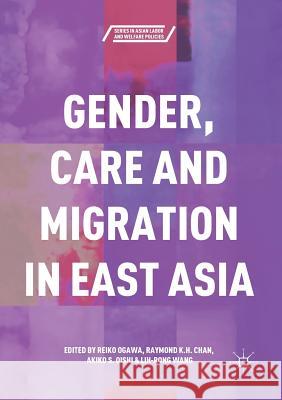Gender, Care and Migration in East Asia » książka
topmenu
Gender, Care and Migration in East Asia
ISBN-13: 9789811349881 / Angielski / Miękka / 2018 / 222 str.
Kategorie:
Kategorie BISAC:
Wydawca:
Palgrave MacMillan
Seria wydawnicza:
Język:
Angielski
ISBN-13:
9789811349881
Rok wydania:
2018
Wydanie:
Softcover Repri
Ilość stron:
222
Waga:
0.29 kg
Wymiary:
21.01 x 14.81 x 1.3
Oprawa:
Miękka
Wolumenów:
01
Dodatkowe informacje:
Wydanie ilustrowane











